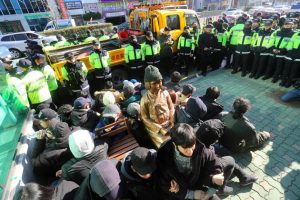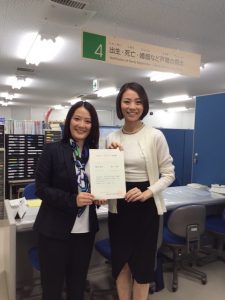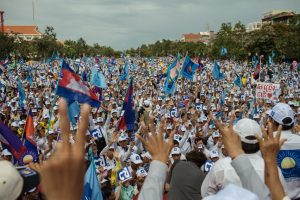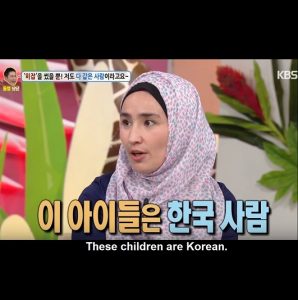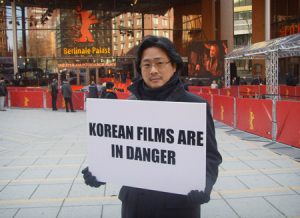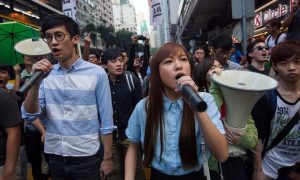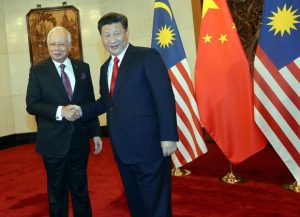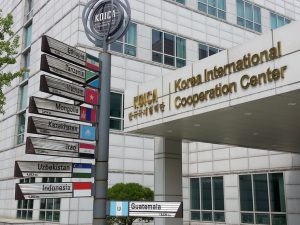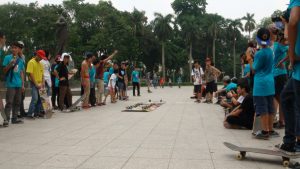Why is the ‘Comfort Women’ dispute a never-ending story?
Memo #394 By: Ji Young Kim – jiyoungkim333 [at] gmail.com and Jeyong Sohn – sohn [at] rikkyo.ac.jp On December 28, 2015, the “comfort women” problem, one of the major stumbling blocks in Japan-South Korea relations, seemed to have been resolved through a governmental agreement between the two countries. Despite its characterization as a “final and […]
Local Governments and the Politics of LGBT Issues in Japan
Memo #393 By: Yasuo Takao – Y.Takao [a] curtin.edu.au In Japan, there was a history of open homosexuality as described in literary evidence dating back from the Heian period (794 – 1185). But in the present day, the Japanese legal system has continually ignored sexual minority issues, while not explicitly criminalizing homosexual behavior (except for […]
Current Gift-Giving Practices Devoid of Popular Legitimacy in Cambodia?
Memo #392 By: Astrid Norén-Nilsson – astrid.nn [at] gmail.com In the last national elections in 2013, the opposition Cambodia National Rescue Party (CNRP) experienced a strong surge in support, finishing a close second to the long-incumbent Cambodian People’s Party (CPP). Whilst the CNRP campaigned on an anti-money politics, rights-based agenda, the CPP has relied on gift-giving […]
Multicultural Policy in South Korea and its Implications for Social Inclusion of Multiethnic Youth
Memo #391 By: Léo-Thomas Brylowski – ltbrylowski [at] gmail.com A record number of children born from mixed marriages are starting to make their way through South Korea’s public schooling system since the country’s multicultural turn in 2007. These children represented less than 0.5% of all students enrolled in Korean public schools in 2010, but are […]
Subsidies and the Film Industry: Lessons from France and South Korea
Memo #390 By: Patrick Messerlin – patrick.messerlin [at] gmail.com and Jimmyn Parc – jimmynparc [at] gmail.com With the continued dominance of Hollywood films around the world, policy makers in Asia and elsewhere are increasingly considering government subsidies as a major fuel for strengthening their national film industries. However, the true effectiveness of subsidies on […]
After the LegCo Oath Controversy, What’s Next for Hong Kong?
Memo #389 By: Justin Kwan – justin.kwan [at] alumni.ubc.ca Escalating tensions raise further concern about Hong Kong’s democracy Hong Kong’s democratic system has been dealt a severe blow after two democratically elected lawmakers who advocated independence from China, Sixtus “Baggio” Leung and Yau Wai-ching, were expelled from office. Beijing, in its interpretation of Hong Kong’s Basic […]
China’s ambitions welcomed in Kuala Lumpur?
Memo #388 By: Phuong Nguyen – h0aiphuong.14 [at] gmail.com and Kai Ostwald – kai.ostwald [at] ubc.ca In the shadows of the headline-grabbing October announcement that the Philippines would forge closer ties with China and “separate” from its long-time ally the United States, Malaysia quietly took its own significant strides towards Beijing’s orbit. Malaysia’s under-the-radar rebalance provides […]
A Tough Choice: the Criminalization of Indonesian Fishermen
Memo #387 By: Antje Missbach – antje.missbach [at] monash.edu The tough choice between illegal fishing and transporting asylum seekers Many Indonesian fishermen have suffered the consequences of breaking Australian law in recent years as they have tried to make a meagre living from traditional work. Because fishing in increasingly overfished seas provides inadequate income, many have tried […]
Why should we care about transnational social capital in development cooperation?
Memo #386 By: Rennie J. Moon – rennie.moon [at] yonsei.ac.kr and Gi-Wook Shin – gwshin [at] stanford.edu Higher education aid as transnational social capital Current approaches to higher education aid have focused either on developing human resources or on building social capital in the local context. For instance, donor countries offer various programs to train […]
Skateboarders, traceurs and changes in urban space and social practices in Hanoi
Memo #385 By: Stephanie Geertman – geertman.stephanie [at] gmail.com What can skateboarders and traceurs in Vietnam tell us about new forms of social practice? Skateboarders riding along the base of a statue of Vladimir Lenin in a public park and traceurs climbing and jumping over walls in the newest middle-class communities flanking the city have become […]
